While tax is a leading area of advice for accountants, it also exerts its considerable influence on financial planning. The very high incomes earned by executives and professionals is generally accompanied by a substantial tax obligation, if under-estimated or mismanaged, it can result in paying more tax than necessary, which directly affects livelihoods, lifestyles and ultimately, personal prosperity.
In this article, I address the financial planning matters, aligned tax implications and tax attitudes that need to be considered in a big picture collaborated financial planning approach for achieving the best financial outcomes for individual circumstances.
In my experience, meetings with high earning executives and professionals, almost always addresses the appropriate ownership of assets.
Why? Because how assets are owned can have personal wealth, asset protection and tax implications that can significantly affect financial planning outcomes in the immediate and longer term.
These discussions aim to tease out the facts, as well as attitudes to income, debt and debt reduction, investment and superannuation. They are usually accompanied by my clients understanding of their obligation to pay tax, and not surprisingly, their strong aversion to paying more tax than necessary.
Indeed, when questioned about their financial requirements, the overwhelming majority of clients consider addressing their high tax circumstance as a pressing priority.
On the face of it, achieving a less-tax outcome can be reasonably straight forward as it might involve financial planning strategies such as contributing to superannuation. The 15% maximum rate on earnings and capital gains is appealing in context of the considerably higher marginal tax rate currently 45% (plus the Medicare levy) endured by high income earners.
But this is usually only part of the solution.
For many executives, particularly those with debt and considerable financial obligations, locking up cash in super until they’re aged 60 for the sole purpose of reducing tax, is unlikely to satisfy bigger picture financial or lifestyle requirements.
For example, this cash may be better used to reduce a private home loan, better still, deposited into a loan offset account that reduces the interest cost on the loan, provides opportunity to save and offers ready access to those funds should they be needed for other purposes.
Tax efficiency is important, and for high earning executives and professionals, this will include proactively managing their salary package that may allow salary sacrifice opportunities or better managing their vesting obligations if they have an executive share scheme (ESS).
Executive share scheme vesting occurs at different times and it’s important to be aware of your company’s vesting timetable. Being prepared to meet what are strict compliance requirements and planning a cashflow approach for paying tax and avoiding penalties is a key aspect of making the most of your ESS and reducing tax payable. You can read more about what to do at vesting time here.
An adviser worth their salt would never recommend purchasing anything just for the tax deduction and you too would be well advised to never allow the tax tail, to wag the investment dog.
However, when considered in context of financial planning goals, a tax-financial planning strategy may include accumulation of income producing shares, property (commercial or residential rental homes) or other assets that utilise debt and tax deductions, to achieve positive wealth AND tax efficient outcomes.
Next steps
If you are bothered by the amount of tax you pay, review your big picture circumstances to consider the relationships between your income, superannuation, ESS management and debt (particularly tax deductible debt) and the impacts of tax.
In my career, I’m yet to meet anyone who enjoys paying tax, so the next best option is to get serious about proactively managing your tax in context of your overall financial position and future plans.
As I mentioned at the outset, tax including international tax is a specialised advice area and as a highly qualified financial planner with a specialisation in ESS strategy, working collaboratively is the key to achieving the best possible outcomes for high earning, tax adverse executives and professionals.
Our financial planning advice model involves compiling an advice team that aligns financial planning, tax and legal advice for legal structures, asset protection and estate planning, to create a properly integrated solution that focuses on and achieves the best possible overall outcomes for specific circumstances.
To learn more about tax and its role in financial planning, please contact James Marshall on +61 (0) 7 3007 2080 or email contact@executivestrategies.com.au
To learn more about James, visit this link.
Further reading:
Offset account: Reduce your home loan interest and possibly tax.
ESS: Is it vesting time for you.
Executive Strategies is a specialised information hub for executives and senior managers who may have founded their own business or who work for growing private, ASX listed companies or government businesses. Its purpose is to provide access to specialist advisers and information that addresses the often-complex issues affecting their personal prosperity.
Stratus Financial Group and its advisers are Authorised Representatives of Fortnum Private Wealth ABN 54 139 889 535 AFSL 357306. This advice is general and does not take into account your objectives, financial situation or needs. You should not act on it without first obtaining professional financial advice specific to your circumstances.
*Please note: For advice and services relating to this matter that are not offered under the Fortnum Private Wealth AFSL, in accordance with our collaborative advice model, when required, such matters are referred to appropriately qualified professionals.








